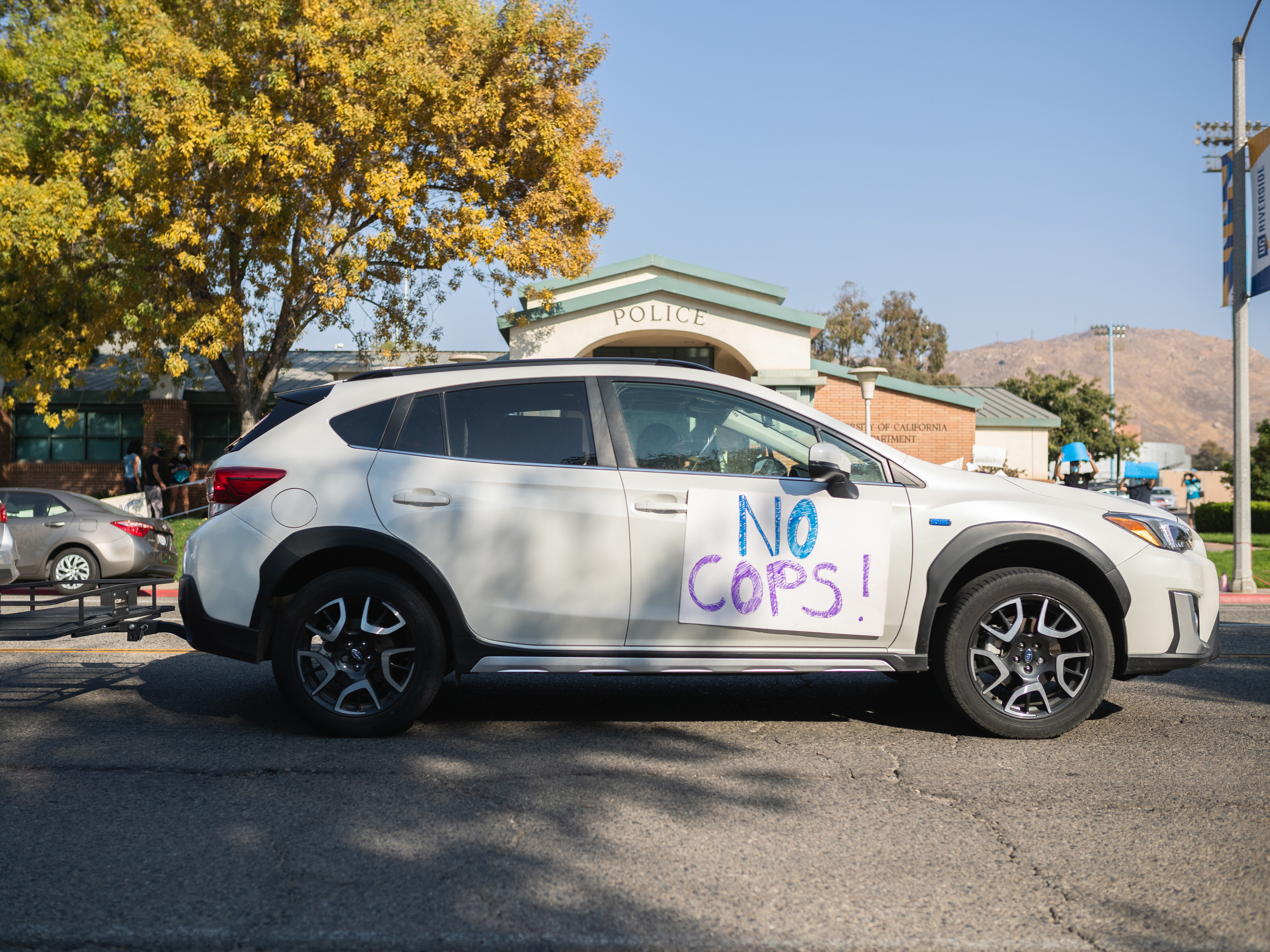
The UC Regents proposed changes to the Universitywide Police Policies and Administrative Procedures on February 5. Those proposed changes include revisions to the “Use of Force” policy which was originally updated based on legislative changes to the use of deadly force in Assembly Bill 392. The proposed policy also adds revision to emphasize de-escalation.
Some new policies that were drafted include the use of body-worn video cameras, concealed carry weapons for UCPD officers and the implementation of a new systemwide response team. Chapter 15: Body Worn Audio/Video Systems outlines incidents where body worn cameras should be activated, which personnel will need to wear one and what shall be done with the video after the encounter. The policy was drafted in order to have a systemwide approach to the use of body worn cameras.
Chapter 16: Systemwide Response Team Policy was drafted to create a specialized group that will assist local campuses to facilitate and protect the Constitutional Rights of all persons, keep the peace and protect life and property and protect lawful activity while identifying and isolating unlawful behavior, amongst others.
Additionally, Chapter 17: The Concealed Carry Weapons policy was drafted because the Systemwide Council of Chiefs of Police wanted to adopt a systemwide and consistent policy on the issuance of concealed carry weapons to qualified retired police officers. The proposal states that each campus chief of police shall issue identification cards and Carry Concealed Weapons endorsements or certifications for its qualified retired peace officers.
The UCR community has been vocal about their disapproval of the new proposed changes and some have expressed strong opposition to any changes. Organizations such as UCR ForThePeople spoke to The Highlander about their thoughts on the state of policing at the UC System.
Members of UCRFTP strongly opposed all proposed changes stating, “All of these duties can be used to intimidate, coerce, terrorize, criminalize and quell public gatherings, protests and other expressions of dissent. The equipment and weapons issued to the SRT by no means increase community safety or serve to ensure the safety of protestors,” when speaking directly about the Systemwide Response Team.
This Monday, May 3 UCR’s chapter of the Cops Off Campus coalition participated in the Day of Refusal protests calling for a safer UCR without police violence on campus. “The May 3 Day of Refusal is a major national direct action by faculty and students who are supporting—and/or part of—a growing national movement to transform campus and public safety, abolish police violence/terror/presence, and create a vision for social justice that directly reflects the spirit, demands, and critical analysis of ongoing global movements against antiblack state violence and police killings,” stated Professor Dylan Rodriguez in an email to colleagues requesting solidarity, linking further information in his email.
In an interview with The Highlander, Humberto Flores, current Ph.D. student in the department of sociology, discussed his work to keep campus police accountable. Through his partnerships with members of the No UCPD coalition and community organizations Million Dollar Hoods and Dignity and Power Now!, the group released a UCPD report Monday about the way that UCPD has been operating at UCLA.
According to UCPD arrest data, the UCLA Police Department reported making 3,229 adult arrests between 2013 and 2018 and during these years, the most-common charges for those arrests were warrants, DUIs, trespassing, public disturbances, and theft. A sum total of nearly $88 million in money bail was levied against arrested persons. “Notably, UCPD data clearly indicates that UCPD arrests most disproportionately impact Black people. Indeed, Black people comprised 29% of all arrests, despite representing only 2% of the Westwood population,” states the report.
“Policing is an anti-Black institution and it disproportionately affects minority people. It’s not that it’s flawed but that’s what it is intended to do,” said Flores. He expressed hope in expanding the report across the UC System in order to understand how policing affects each campus individually.







